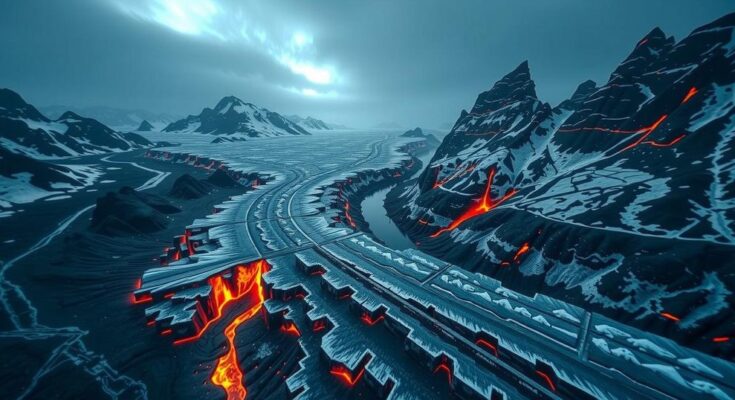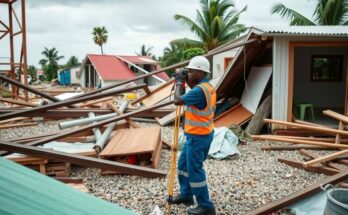Scientific investigations are underway to examine the potential for rapid glacier melting due to climate change to initiate volcanic eruptions, particularly in Iceland and Antarctica, where extensive ice covers many volcanoes. The reduction in weight from melting ice could allow magma to form and migrate more freely, leading to increased volcanic activity and subsequent carbon dioxide emissions that may further exacerbate climate change. This phenomenon poses substantial risks not only locally but also globally through rising sea levels.
Recent research has unveiled alarming possibilities regarding the interplay of climate change and volcanic activity, particularly concerning the accelerated melting of glaciers in regions where ice covers active volcanoes. A collaborative project involving 12 institutions, led by the University of Iceland, is investigating whether the rapid decline of ice may catalyze increased volcanic eruptions. According to this research, scientists assert that as glaciers and ice sheets diminish, the exceptional weight they exert on the Earth’s crust lessens, which could lead to intensified activity in underlying magma chambers. Over half of Iceland’s volcanoes are currently ice-covered, and the potential for heightened volcanic eruptions is particularly concerning for global climate conditions, as these eruptions can release substantial amounts of carbon dioxide into the atmosphere. Additionally, the warming climate poses a threat to volcanoes situated beneath major ice sheets, such as the West Antarctic Ice Sheet. The melting of these ice formations could not only provoke eruptions but also accelerate ice flow into the ocean, thereby contributing to rising sea levels. Experts have identified the world’s most dangerous ice-covered volcanoes, focusing on their eruption history and proximity to populated areas. Notably, seven of the top ten volcanoes identified are located in the Andes, a region already known for its seismic activity. Furthermore, British volcanologist John Smellie has observed that Antarctica may host anywhere from 100 to 150 active volcanoes beneath its ice, with current satellite data indicating a loss of over 150 billion metric tons of ice annually. Should climate change initiate a new phase of volcanic activity, it would significantly exacerbate the melting of the Antarctic ice sheet, intensifying global sea level rise and posing dire risks to coastal cities around the world.
The accelerating impacts of climate change have prompted scientific inquiry into the repercussions this phenomenon may have on volcanic activity, particularly in glaciated regions. Research indicates that glaciers exert substantial weight on the Earth’s crust, which subsequently inhibits the movement of magma from the mantle. However, as ice diminishes due to rising global temperatures, the pressure that suppresses magma formation and movement also declines. This shift may initiate a new era of volcanic eruptions, especially beneath regions with extensive glacial cover, such as Iceland and Antarctica, where the ramifications could extend far beyond local landscapes and influence global sea levels.
In summary, the emerging evidence highlights a potential linkage between the rapid melting of glaciers due to climate change and an uptick in volcanic activity. As glaciers recede and relieve pressure on the Earth’s crust, magma could more readily form and migrate, increasing the likelihood of eruptions in volcanically active regions. The implications of this dynamic are profound, particularly regarding the associated risks of rising sea levels and the effects on human populations residing near these geographical hazards. As such, ongoing research is critical to understanding and forecasting these interrelated environmental shifts.
Original Source: www.asiafinancial.com




